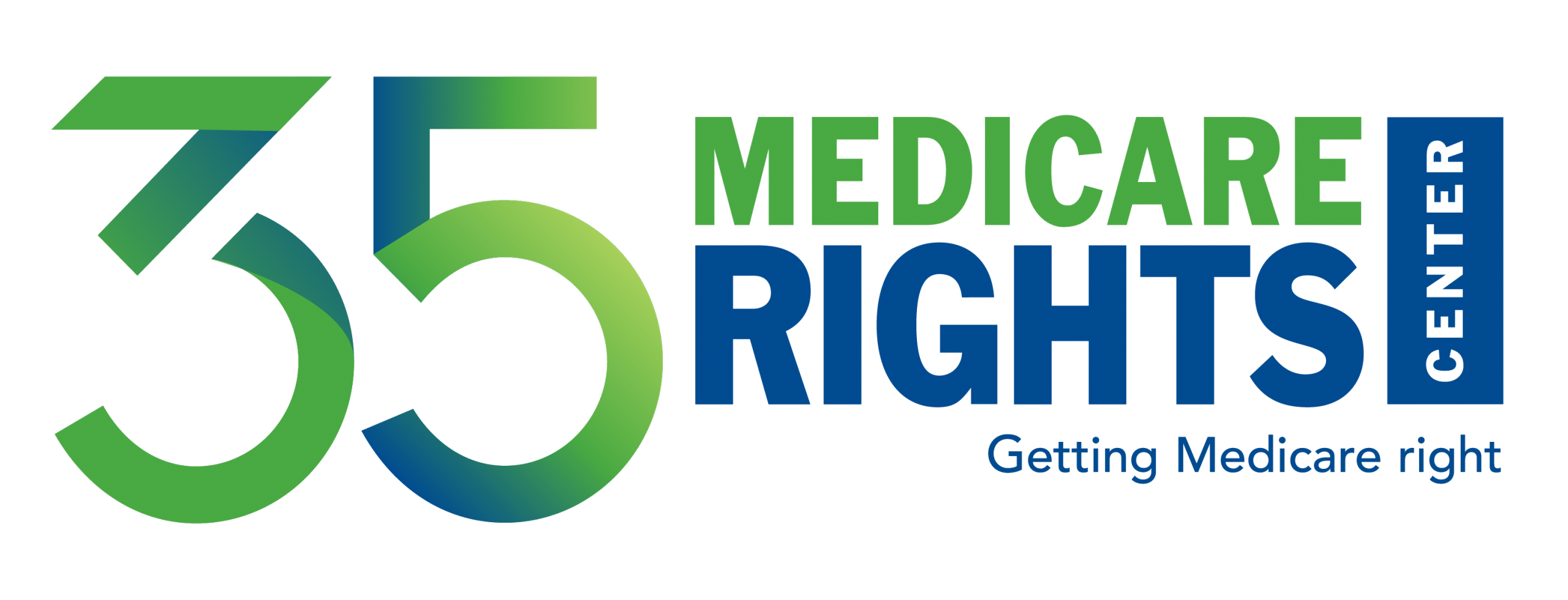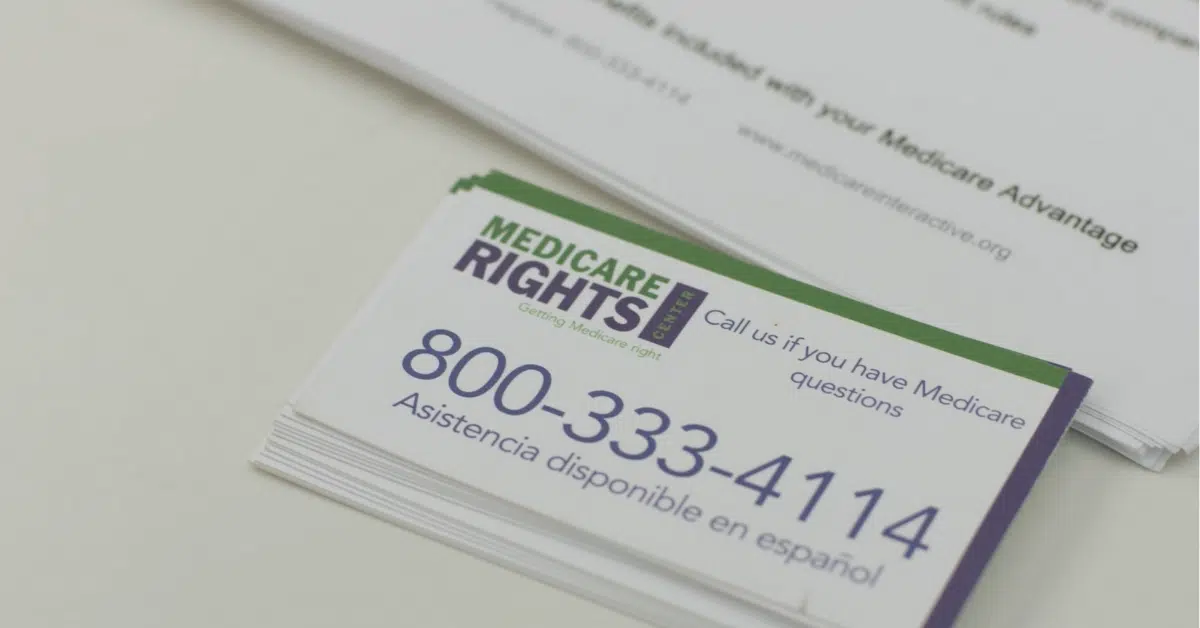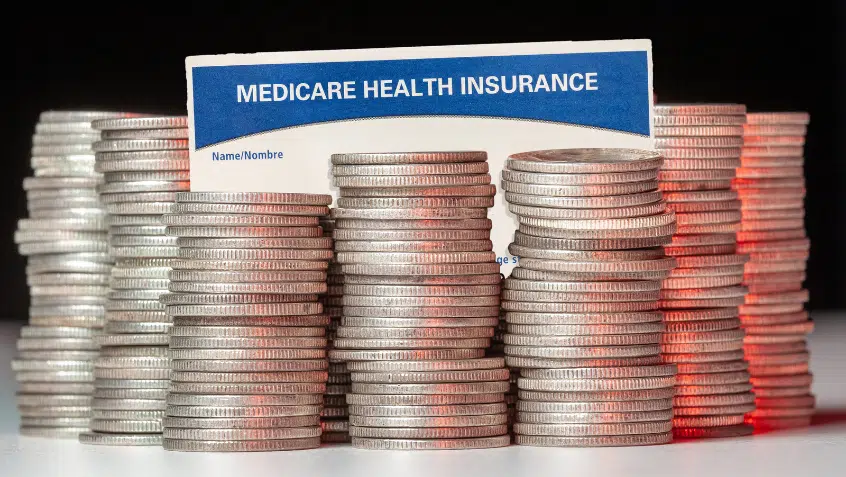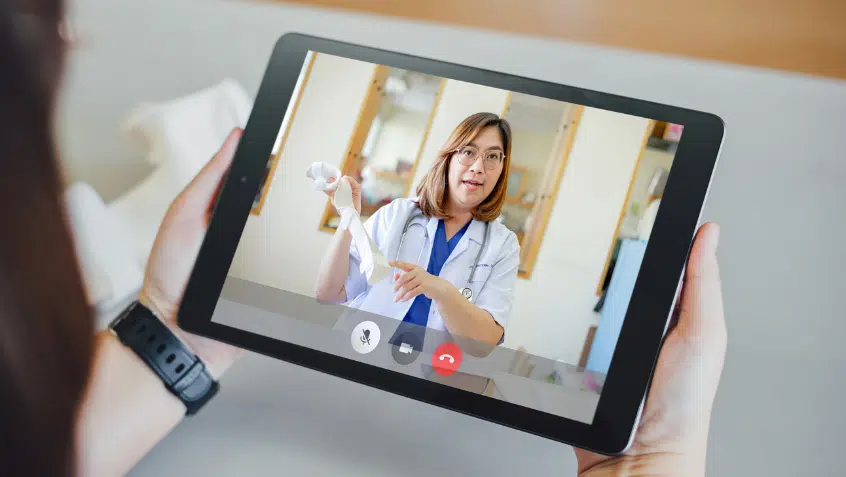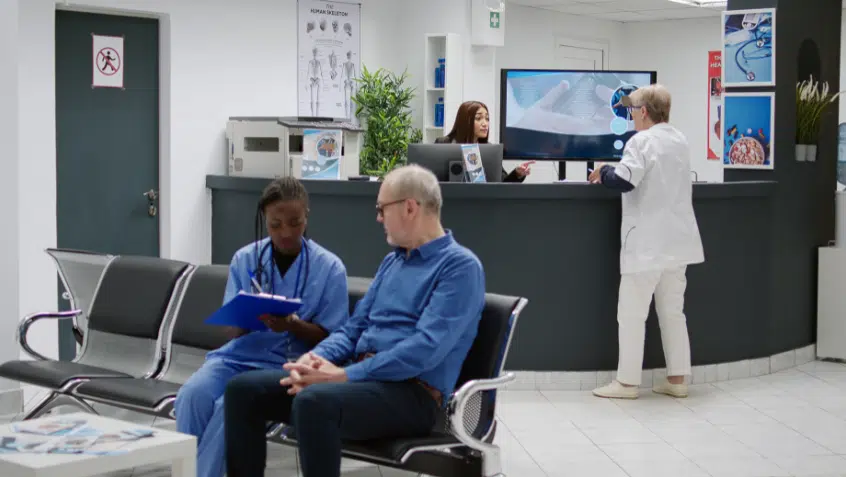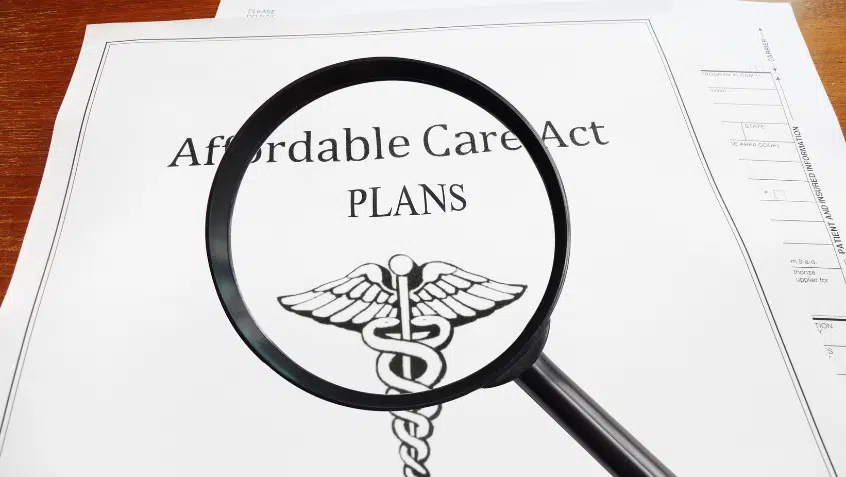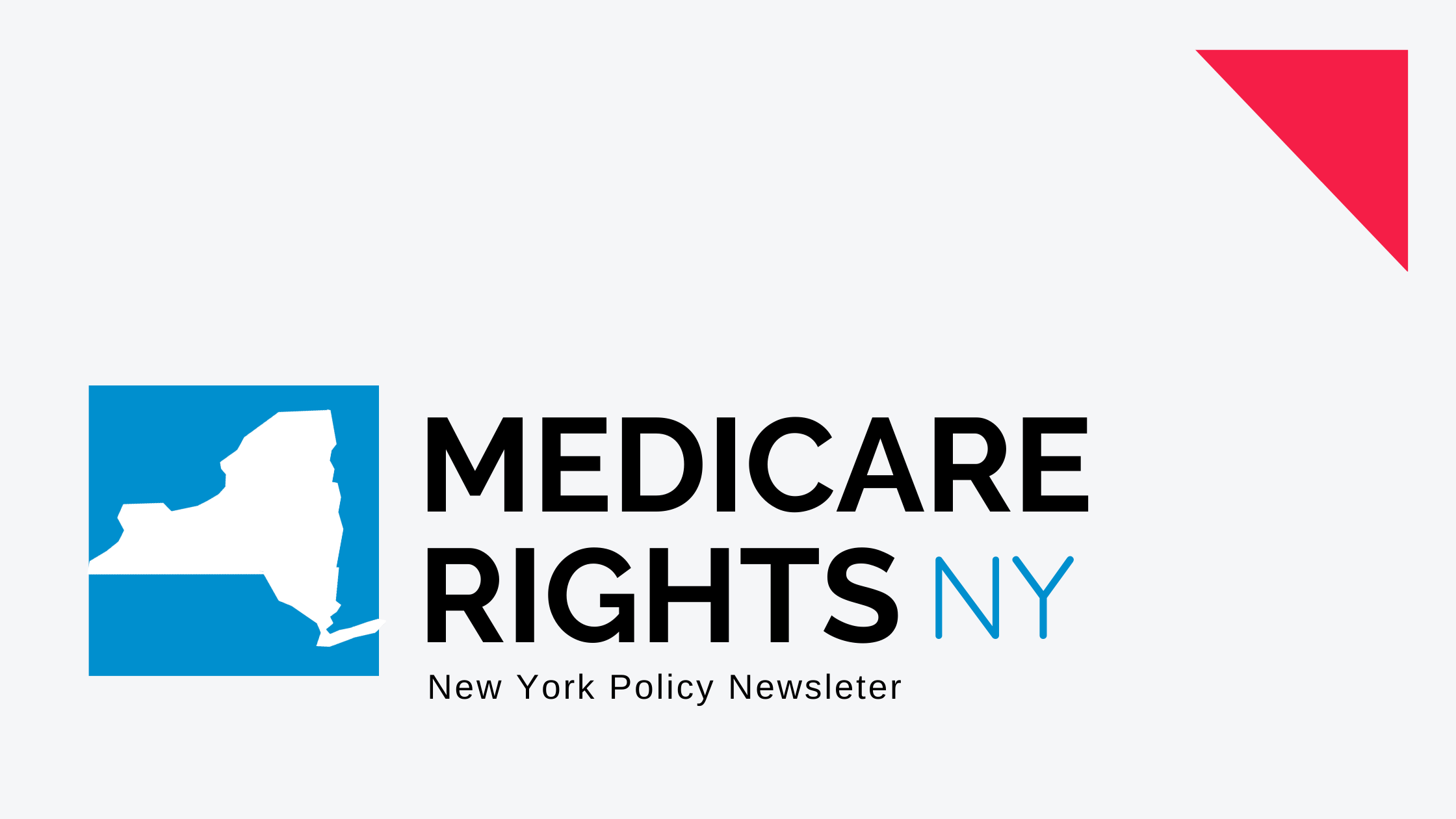
Coronavirus resources for Medicare beneficiaries in New York
As daily life continues to shift in response to the coronavirus outbreak, we hope you are staying safe and healthy. At Medicare Rights, we understand this is a stressful time. The situation in our cities and towns is changing rapidly. Amid this crisis, we remain steadfastly committed to ensuring New Yorkers have meaningful access to high-quality, affordable health care and will continue to share updates.
As state and local health departments continue to take proactive measures against COVID-19 (also called coronavirus), it is important that Medicare-eligible individuals have access to the information they need to stay prepared. Please share the following list of resources to help keep beneficiaries informed and ensure timely access to appropriate care.
Counselors on the Medicare Rights’ National Helpline are available at 800-333-4114, Monday through Friday. We are ready to answer questions about Medicare, including those related to the coronavirus, and resolve complex cases related to Medicare and/or Medicaid including prescription drug access, behavioral health, Medicaid long-term care, and other issues. We can also help connect people to additional community resources.
Medicare Rights’ free and independent reference tool, Medicare Interactive, is also up and running. This online resource is designed to help older adults and people with disabilities navigate the complex world of health insurance.
Medicare’s coverage of coronavirus-related services
In general, Medicare covers medically necessary items and services that a beneficiary receives from a provider who accepts Original Medicare or is in-network for the beneficiary’s Medicare Advantage Plan. Medicare Advantage Plans must cover everything that Original Medicare does, but they can do so with different costs and restrictions. However, plans must meet certain requirements following the declaration of a disaster, emergency, or public health emergency. For example, Medicare Advantage Plans must charge in-network cost-sharing amounts for services received out of network.
Resources from the Medicare Rights Center
- Medicare Rights’ blog: What you need to know about coronavirus and Medicare coverage
- Medicare Rights’ blog: Federal government takes steps to protect people with Medicare
Additional resources for New Yorkers
- New York City coronavirus updates
- New York City united against coronavirus
- New York State Department of Health hotline (1-888-364-3065)
Food Delivery for SNAP enrollees
Individuals receiving Supplemental Nutrition Assistance Program (SNAP) benefits have the option of using EBT cards to purchase food and have it delivered via Amazon, ShopRight, or Walmart (delivery fees must be paid separately using a debit or credit card.)
Congress is continuing work on coronavirus relief bills. This week, the Medicare Rights weighed in, outlining our priorities for any future legislation. Our letter focuses on investments and policy changes that are needed to promote the health and economic security of older adults and people with disabilities during this crisis and beyond.
As the number of cases of coronavirus increases, so does the importance of programs like Medicare in helping older adults, people with disabilities, and their families build and maintain their health and economic security.
Access to telehealth coverage temporarily expanded
In response to the current coronavirus emergency, the Centers for Medicare & Medicaid Services (CMS) temporarily implemented new telehealth coverage flexibilities. Specifically, Medicare beneficiaries can now receive coverage for telehealth services regardless of where they are located (normally Original Medicare only covers telehealth for beneficiaries living in rural areas or to treat behavioral health conditions). This temporary expansion should allow beneficiaries to access telehealth benefits from their homes or other community locations.
For more information about Medicare coverage of telehealth services during the coronavirus emergency, see CMS’s provider fact sheet and FAQ.
Skilled nursing facility three-day stay waiver
Medicare Part A generally only covers skilled nursing facility (SNF) care if someone was a hospital inpatient for three days in a row before entering the SNF. This is known as the three-day qualifying hospital stay.
At this time, Medicare has removed the three-day qualifying hospital stay requirement for beneficiaries who experience dislocations or are otherwise affected by the coronavirus public health emergency. According to CMS, this waiver includes but is not limited to beneficiaries who need to be transferred to a SNF—due to nursing home evacuations or to make room at local hospitals, for example—as well as people who need SNF care as a result of the current public health emergency, regardless of whether they were previously in the hospital.
Medicare is also easing other SNF-related coverage requirements. Typically, Medicare Part A covers up to 100 days of SNF care each benefit period. A benefit period begins when a beneficiary is admitted to a hospital as an inpatient, or to a SNF, and it ends when they have been out of a SNF or hospital for at least 60 days in a row. The 100 days of covered SNF care resets at the beginning of a new benefit period. Recognizing that current circumstances may make this renewal process uniquely difficult, Medicare is allowing an exception. Beneficiaries who are unable to start a new benefit period because of the public health emergency can get another 100 days of covered SNF care without having to begin a new benefit period.
For more information about the SNF three-day stay waiver, see CMS’s memo.
Changes to Medicaid home care access
New York State Department of Health (NYSDOH) released new guidance for authorization of community based long-term care services and supports. This guidance provides instruction for handling assessments for Medicaid beneficiaries in need of or receiving long-term care services.
A physician’s order is still required to access Personal Care Services (PCS) and Consumer Directed Personal Assistance Services (CDPAS). However, physicians are encouraged to complete the required physician’s order via telephone or covered telehealth. During this period, community health assessments for these and other long-term care services and supports may also be conducted by telephone or telehealth. NYSDOH is also suspending all required periodic reassessments for Medicaid beneficiaries receiving home care services.
The state also informed the Human Resources Administration in New York City that based on recently signed federal legislation, no person who currently has Medicaid coverage will lose their coverage during the coronavirus pandemic.
Register for Medicare Rights NY
Medicare Rights NY is a regular email newsletter with updates on health policy and advocacy developments in New York State and their impact on older adults and people with disabilities. Stay up-to-date on key policy developments that affect older New Yorkers and those with disabilities.
The Latest
Most Read
CMS Announces 2025 Premiums and Deductibles for Medicare Parts A and B
Watchdog Estimates $7.5 Billion Medicare Advantage Overpayment from “Questionable” Health Risk Assessments
Millions See Cost Savings Under the Inflation Reduction Act
CMS Finalizes Payment Rule, Including Update to the Custody Definition
Add Medicare to Your Inbox
Sign up to receive Medicare news, policy developments, and other useful updates from the Medicare Rights.
View this profile on InstagramMedicare Rights Center (@medicarerights) • Instagram photos and videos
